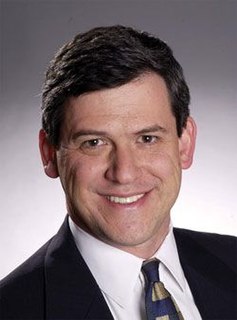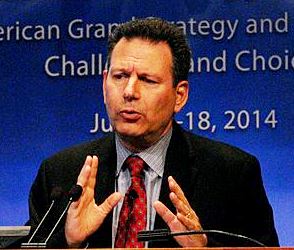A Quote by Bashar al-Assad
Syria is in a state of war since its land was occupied for more than four decades, and the nature of the frontier in Syria implies that most of the army is in inhabited areas, most of the centers are in inhabited areas.
Related Quotes
Talking about winning and losing is like if you're talking about two armies fighting on two territories, which is not the case. Those [terrorists] are gangs, coming from abroad, infiltrate inhabited areas, kill the people, take their houses, and shoot at the army. The army cannot do the same, and the army doesn't exist everywhere.
What's going on in Syria is the worst humanitarian crisis since World War II. And we are punishing those who are suffering most in this circumstance, in this condition. We vet refugees from Syria for a period of 18 to 24 months before they're allowed to come to the United States. And, you know, if you will permit me, I think we know more about them by the time they get here than we know about the president's finances.
We wouldn't have withstood for two years and a half. We would have disintegration of the army, disintegration of the whole institution in the state ; we would have disintegration of Syria if that was the case. It can't be tolerated in Syria. I'm talking about the normal reaction of the people. If it's not a national army, it cannot have the support, and if it doesn't have the public support of every sect, it cannot do its job and advance recently. It cannot. The army of the family doesn't make national war.
I think it was going to be hard to work with Russians on Syria. There is some potential overlap between the U.S. and Russia in that the Russians don't want to see the Syria situation unravel to a point where they have to escalate their own involvement. But at the moment, I don't see the U.S. and Russia on the same page in Syria. Russia seems much more interested in consolidating government control over liberated areas. It seems to me that the U.S. and Russia are proving they can disagree for independent reasons in any number of theaters.
I think I have great knowledge of - for military, and I think I have better vision for Syria than a lot of the so-called great military geniuses that are saying how to fight the war with Syria. In my opinion, they're doing just the opposite. Are we going to start World War III over Syria? Are we going to be there for the next 40 years?
While the foreign policy elite in Washington focuses on the 8,000 deaths in a conflict in Syria – half a world away from the United States – more than 47,000 people have died in drug-related violence since 2006 in Mexico. A deeply troubled state as well as a demographic and economic giant on the United States’ southern border, Mexico will affect America’s destiny in coming decades more than any state or combination of states in the Middle East.
I think most of the Washington foreign policy establishment exists in a fantasy world when it comes to Syria. They fundamentally don't understand that Russia and Iran, from the beginning, had much more at stake in Syria than the United States did. Russia and Iran were going to do everything possible in order to keep Bashar al-Assad in power.
You grow most in your areas of greatest strength. You will improve the most, be the
most creative, be the most inquisitive, and bounce back the fastest in those areas
where you have already shown some natural advantage over everyone else your strengths. This doesn't mean you should ignore your weaknesses. It just means
you'll grow most where you're already strong.





































